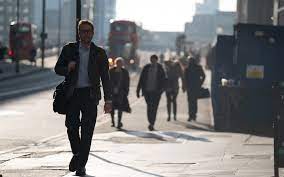Power shifts towards UK workers after wage squeeze on profits

London: British workers are getting a bigger slice of the economic pie than before the pandemic, signalling a shift in the balance of power away from employers after chronic labour shortages delivered unprecedented bargaining power over wages.
The share of the economy that workers take in wages has climbed to its highest level since the early 2010s, when excluding distortions during the pandemic, analysis of official statistics show. The proportion taken by profits meanwhile has been falling.
The findings indicate that instead of passing higher wages onto consumers, firms have taken a hit to their margins and are struggling to raise prices to compensate. That will comfort the Bank of England, which is seeking signs that underlying inflationary pressures are being contained as it calibrates how quickly to cut interest rates.
Paul Dales, chief UK economist at Capital Economics, said the labour share could be sustained if wage growth settles above pre-Covid levels.
“It’s being driven by wage growth really, so before the pandemic, wage growth was unusually low by historical standards,” he said. “But since the pandemic, wage growth has gone up quite a lot. It’s still unusually high.”
The figures also raise more doubts over claims of “greedflation”, a hotly debated topic at the height of the energy-price shock when firms were accused of ripping off customers by using the cover of inflation to raise prices more than they needed.





